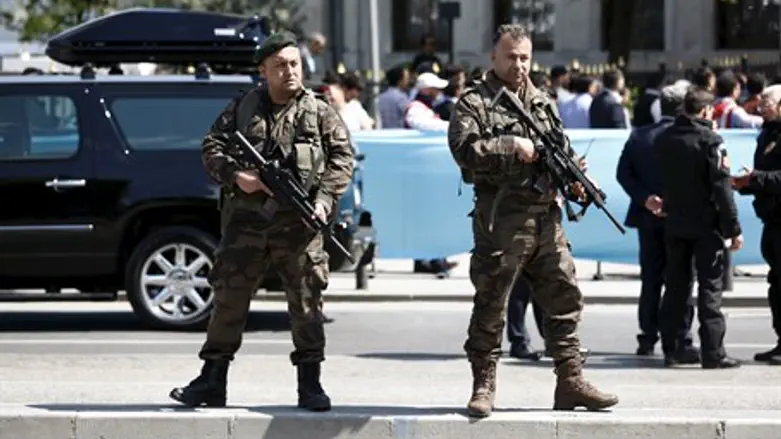
Turkey’s state-run news agency reported that police have detained at least 22 people in connection to the terror attack on Ataturk Airport. Officials identified three as ISIS fighters, originally from Uzbekistan, Kyrgyzstan, and Dagestan, a region in the south of Russia. Dagestan has been suffering from guerrila terror since 2000. All three areas are predominantly Muslim.
According to Anadolu Agency, the police conducted simultaneous raids at 16 locations in the city, while an additional raid in Izmir saw another 9 arrested. Another two suspected ISIS terrorists were killed crossing the border from Syria.
The evidence compiling that ISIS commited the Istanbul attack is puzzling. Turkey has long served as an open road for weapons and supplies into ISIS’s embattled territories in Syria. More, Turkey’s President Erdogan, a Sunni Muslim, has been tacitly supporting any rebel activity against his enemy Bashar al-Assad.
"Strangely, IS accuses Turkey of lending support to the YPG (Kurdish People's Protection Units) and has blamed Turkey -- and others -- for the loss of territory along the border," Aron Stein, of the Atlantic Council think-tank, proposes a possible motive. For its part, after having condoned IS's activities, Turkish police have been "hitting IS in Turkey pretty hard" including raids in Gaziantep and elsewhere. Ankara announced recently that its forces were shelling ISIS positions in Syria.
If ISIS is behind the attack, though, why hasn’t it trumpeted the news? ISIS is usually famous for its gory videos and press releases. Stein thinks they are taking a longer view of things.
"It's unclear why IS doesn't claim credit, but it appears to be part of a broader strategy to exacerbate internal Turkish tensions, ranging from political polarisation to the Kurdish-Turkish conflict," he muses.
Ege Seckin of IHS Country Risk thinks that "the attack was most likely conducted by the Islamic State to undermine the Turkish economy by attacking the airport ahead of the summer months, when tourism peaks." Turkey’s economy normally rakes in around $30 billion in tourism each year.
"If the Islamic State is indeed behind this attack, this would be a declaration of war," says Soner Cagaptay, director of the Turkish Research Programme at The Washington Institute.
"Thus far, Turkey has avoided engaging the Islamic State in full war, instead prioritising its battle against the Assad regime and the Syrian Kurds. For Turkey, fighting the Islamic State as a first order battle could now be unavoidable."
